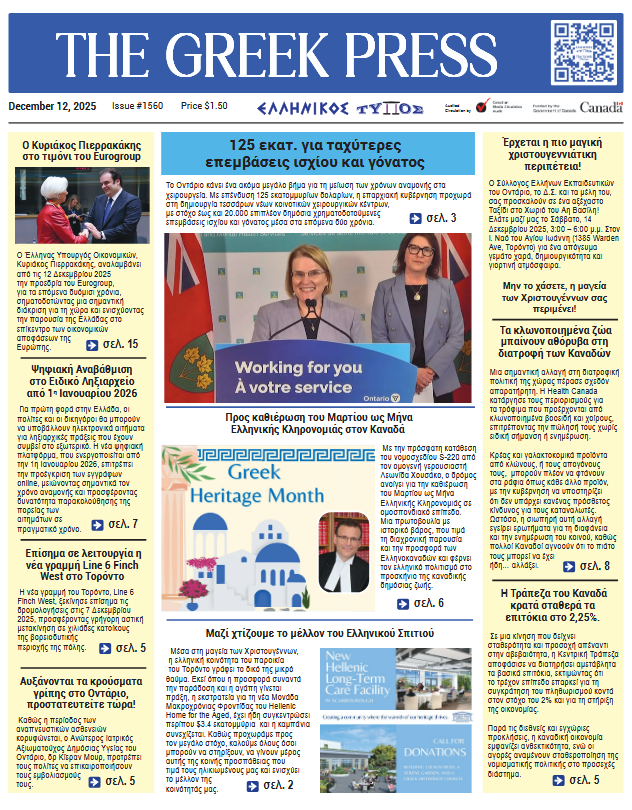 CLICK TO VIEW THE WHOLE PUBLICATION ONLINE
CLICK TO VIEW THE WHOLE PUBLICATION ONLINEWhen you hear that Robert Lepage is directing something, you snap at attention. When you learn that the man with the wild and fertile imagination is directing Macbeth at the Stratford Festival, you prepare yourself for something extraordinary. In a program note Lepage states that he believes that “a tragedy about a powerful leader with unchecked ambition is all too timely and definitely a “modern” play” you feel you have hit the jackpot.
There is an insert in the program for the play informing us that the production has two underwriters (The Fabio Mascarin Foundation and Laurie J. Scott), and three Production Co-sponsor (Sylvia Soyka, Carol Stephenson, O.C. and Catherine Wilkes) and there are more than three pages of Production Donors. You may interpret that any way you want.
The lights go down in the Avon Theatre and credits are projected on the screen as if we are watching a movie. The title of the play is displayed, and the audience applauds wildly. The names of the actors are met with enthusiastic applause as well as those of the people behind the scenes including the set and props designer, the costume designer, the lighting designer and the sound designer. All are applauded separately with diminishing enthusiasm. I have no idea why or how the opening night audience was primed to acknowledge them before seeing the production.
The performance begins with three people in a motorboat on water. There is a man in the middle who is killed and thrown overboard. I have no idea why. Then Shakespeare’s play begins with two men entering the stage on fancy motorcycles. They clearly belong to a motorcycle club, and they meet the Three Witches. They look like gangsters’ molls, but we accept them as they are. Credit Aidan deSalaz, Paul Dunn and Anthony Palermo. The first two scene of Shakespeare’s play are basically omitted.
We reach Macbeth’s castle which turns out to be a modern two-story building with a prominent neon sign informing people that it has vacancies. The Thane of Cawdor and Lady Macbeth are running a motel. We are shown all sides of the building which is constructed for the production in several moving parts that can be shown from several angles.
It should be noted that all movement in the production is done on big and fancy motorcycles with the riders wearing modern motorcycle gang attires. There are red headbands, leather jackets with gang insignia on the back and some of the members sport long hair and beards.
Lepage has the pick of actors for the production. Tom McCamus plays Macbeth and Lucy Peacock portrays Lady Macbeth. Graham Abbey plays Banquo and Tom Rooney is Macduff. Maria Vacratsis gets the juicy part of the Porter but his/her lines have been severely cut. Vacratsis doubles as the servant Gentlewoman tending Lady Macbeth with the Doctor (called a Paramedic in this production played by Paul Dunn). In the Mad Scene Lady Macbeth is sitting on a toilet while her Gentlewoman and the Paramedic follow her from an adjoining room.
McCamus, Peacock, Graham and Rooney can do Macbeth under many conditions, but motorcycles and gang paraphernalia do not add anything to their performances or to the play. The same can be said of the large cast without naming them all.
The murderers (Dakota Jamal Wellman and Matthew Kabwe) ordered to assassinate Banquo and his son Fleance meet them at the gas pumps where the prospective victims stop to fuel up. Fleance escapes but Banquo is killed. They douse the pumps with gas and set them on fire. There is an explosion, and the pumps are turned into barbecues for the famous banquet scene that follows immediately. Fascinating
Lady Macduff and her children are cut out. There are many changes to the script but unfortunately, I did not catch all of them.
In the final scene Birnam Wood moves to Dunsinane on motorcycles and the whole thing comes to an end.
The sets and props are designed Ariane Sauve and most of the action is set in Macbeth’s motel or castle with exception of the scenes with the Witches and the action preceding the arrival there by King Duncan (David Collins).
I found a disconnect between the action on the stage, however imaginatively conceived and Shakespeare’s play. Macbeth may have become a powerful leader with unchecked ambitions, but he begins from a respected civil and military position. A gang member killing another gang member is meaningless. A highly placed aristocrat killing the king is of national importance. And when Birnam Wood moves to Dunsinane on motorcycles the disconnection is complete.
Even Homer nods.
Macbeth by William Shakespeare, directed by Robert Lepage and created in collaboration with Ex Machina opened on May 28 and will run in repertory until November 2, 2025, at the Avon Theatre, Stratford, Ontario. www.stratfordfestival.ca






























